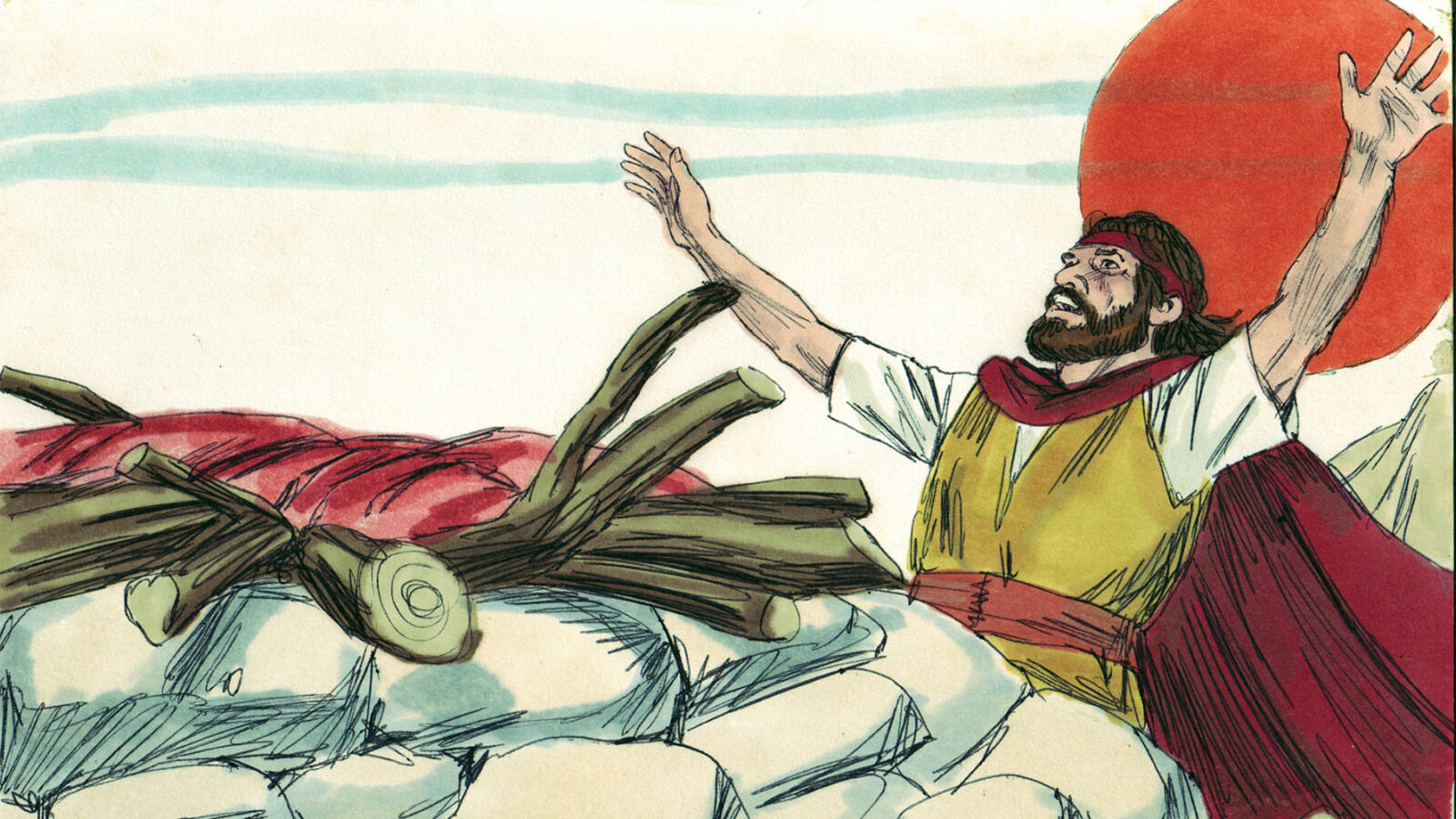Elijah the prophet first appears in 1 Kings 17:1, where he confronts King Ahab of Israel, telling him that neither dew nor rain would fall on the land for three years as punishment for Israel’s waywardness.
Elijah was of the family of the Tishbites who lived in the area of Gilead. While it is not directly stated that Elijah was an Israelite, this may be inferred from 1 Kings 19:10 and 18.
Earlier in their history, the Ephraimites accused Jephthah and his men of being “fugitives of Ephraim”, one of the tribes of Israel (Judges 12:4). Jephthah had led men from Gilead against an army from Ephraim and defeated them. Gilead was an area on the east of the Jordan River and this name is referred to scores of times in the Old Testament. Where the name Gilead appears it mostly refers to an area of the country. It also refers to a mountain range in that area, to the father of Jephthah and one of the chiefs of Gad. The area is now part of the modern country of Jordan. Elijah was a prophet during the reigns of Ahab and Ahaziah, kings of Israel.
So much for Elijah’s ancestral background. Let us now consider this prophet’s failures and his victories.
Failure
Immediately after his shattering victory on Mount Carmel, Elijah fled when Queen Jezebel threatened to kill him by the same time on the morrow. By now Elijah’s spiritual and physical resources were drained and, seemingly forgetting that God could help him in his extremity, Elijah fled a day’s journey into the wilderness and sat down under a broom tree. Although God had sustained him during the drought, beside the Brook Cherith and at the house of the widow of Zarephath, Elijah blurted out a prayer for God to take his life, for he felt he was no better than his fathers.
God would have none of that, for He still had a work to do through His prophet. Rather than letting His servant die in the wilderness God had something wonderful in mind for His devoted servant.
Elijah went to sleep under the broom tree, totally exhausted. Later, an angel, who had prepared a meal for Elijah, touched him and bade him to eat and drink. We can only imagine the restorative powers in that simple meal of bread and water, seeing it was prepared by an angel. Truly, food from heaven made on earth. Elijah slept again and then dined on another meal prepared by the angel. The angel, knowing the ingredients in the meal he had prepared for Elijah, instructed him to go on his way to Horeb (ie. Sinai), the mountain of God. On the strength given him from those two meals, Elijah journeyed 40 days, sleeping in a cave when he arrived at Horeb (1 Kings 19:1-9).
God then spoke to His servant in a kindly manner, asking him what was he doing there? It was here that Elijah poured his heart out to God as to why he had fled, saying, “The children of Israel have forsaken Your covenant, torn down Your altars, and killed Your prophets with the sword. I alone am left; and they seek to take my life” (1 Kings 19:10).
But God had a surprise for Elijah, for He said, “I have reserved seven thousand in Israel, all of whose knees have not bowed to Baal, and every mouth that has not kissed him” (v10). Appropriately chastised, Elijah left the mountain, found Elisha, son of Shaphat, and threw his mantle upon him as the sign that Elisha would be God’s prophet after Elijah.
So, what was Elijah’s failure? Simply, that he did not continue to trust in God at the threat of Jezebel so soon after his great victory for God on Mount Carmel. God does not abandon us after one victory. He is with us all the time, although unseen, as He demonstrated shortly after. We must not let our faith in God waver when adverse circumstances are seemingly about to overwhelm us. Instead, we should sing in our “prison” like Paul and Silas did, with their feet in stocks and Roman guards on either side.
Trust renewed, though, turns a failure into a victory.
Victory
When the drought was due to end, God sent Elijah to Ahab to tell him that rain was coming (1 Kings 18:1-18). Elijah then told the king that he must assemble the 450 prophets of Baal and 400 prophets of Asherah on Mount Carmel. It was there that the people would have to decide who was to be their God, after vacillating between the great God of heaven and the pagan gods of the surrounding countries.
The air was electric with expectancy as Elijah, in total trust in God, had told the people to prepare an altar, slaughter a beast on it and the prophets of Baal and Asherah were to call on their gods to kindle a fire to consume their offering. Of course, that did not happen, even though their raving and ranting continued all day. Quietly and calmly, Elijah then prepared an altar to the Lord, laid the dead beast on it, had barrels of water poured over the sacrifice and altar and then prayed a simple prayer of dedication to God, asking him to show the people who was the true God. God immediately rewarded the faith of His servant by sending fire from heaven that totally consumed not only the sacrifice, but the stones of the altar and the water in the drain around the altar.
The conclusion was obvious to the thousands of Israelites who had gathered on Carmel for this great spectacle. The prophets of Baal and Asherah were seized and slaughtered and the God of heaven was acknowledged as the true God.
As promised, Elijah discerned that rain was on the way and told King Ahab that he must hurry back to Jezreel. Not only that, but God gave His servant strength to run ahead of Ahab’s chariot right to the entrance of Jezreel, the city of the king of Israel at that time.
If ever there was a more resounding victory gained through one of God’s servants, it is not recorded in Scripture. Faith and trust triumphed in Elijah’s life with the power of God sustaining him through that traumatic experience that lasted a whole day and into the evening.
Surely, Elijah was a victor in the true sense of the word.
Elijah’s ministry was soon to end, but not his life! From his experience with God on Horeb, he went to find Elisha and anointed him as God’s next prophet by throwing his mantle over him. Elisha then followed Elijah and would not leave his side even when Elijah said he was going to other places. The moment came in God’s great time clock though, when a chariot of fire appeared above Elijah and he was taken to heaven, never experiencing death. This was truly the ultimate reward for a faithful prophet—even though he had his weaknesses—who not only did not die, but ministered to the Saviour, with Moses, on the Mount of Transfiguration during Jesus’ ministry (Matthew 17:1-3).
What an honour for one of God’s true victors!
William Ackland is retired in Cooranbong (NSW) and has written eight books.






